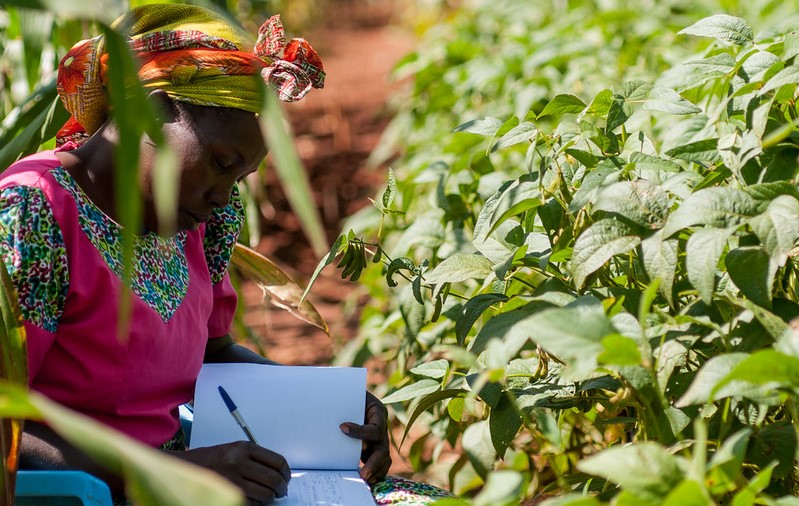By Ananya Chakraborty and Lennart Kaplan
There has been a spurt in research to design appropriate policy solutions for achieving the 2030 Agenda for Sustainable Development in the Global South. Ironically, such research projects often build upon existing power hierarchies, which may result in unsafe and dangerous working conditions and undermine the Sustainable Development Goal for decent work (SDG 8).
The current global architecture of development research projects often operates at a three-tier level, with researchers in the Global North, elites in the Global South and local researchers. Researchers from the Global North often provide the funding and collaborate with those in urban pockets in the Global South. The latter, in turn, hire local researchers for conducting the actual surveys or research, who take most of the burden of collecting the valuable data. There is a significant power hierarchy between the three levels in terms of contributing towards research design and collaborating actively in the research. Instead of building upon local researchers’ knowledge and lived experiences, they are often relegated to the role of field research assistants, and receive limited acknowledgement in the final research output. Since researchers from the top two tiers may often not be physically present in the field, their research designs risk underestimating the difficulties posed by field-level realities, including but not limited to the inadequate working conditions experienced by local researchers. In this way, development-oriented research itself may violate the principles the Sustainable Development Goal for decent work (SDG 8).
Decent work and implications for the wellbeing of research staff
Decent work implies facilitating opportunities to maintain freedom, equity, security and human dignity in the workplace, while providing decent and productive working conditions. In reality, the working conditions of development research staff in the Global South often fall well short of meeting these goals. As development research is increasingly financed by aid budgets, there is ever mounting pressure on the researchers to provide quick results. But tight time schedules may not match the local reality. In order to meet deadlines, research staff may work substantially more than the contractually agreed weekly working hours. Long work days also amplify the risks for interviewers in unstable settings, especially if they are carrying expensive data collection equipment.
Given shoestring budgets and the one-shot nature of many research projects, local interviewers and translators are often hired on a short-term basis without a contract or social insurance. This is particularly problematic during the ongoing COVID-19 pandemic. Research staff could either face unemployment for several months due to forced delays or the cancellation of fieldwork, or be incentivized to take higher risks to complete data collection tasks. Even if employed formally, local staff might often receive wages covering only their basic costs. However, due to the complexity of the local research context, unforeseen expenses often arise such as more time is needed due to lack of proper roads. Even worse, traffic accidents, unsafe transportation and chances of contracting infectious diseases magnify the risks which local researchers and research staff take, often without any kind of insurance.
Research on sensitive topics like racial, gender or caste-based violence puts local researchers in harm’s way, especially if researchers do not adequately consider the context. For example, female researchers in the Global South might be more susceptible to experiencing gender-based violence due to the patriarchal nature of several countries. Despite such dangers, local research staff is attracted to take on short term projects in the hope of fostering new contacts, learning and on-the-job capacity development as well as limited alternative opportunities.
We can be better than this
Development research is itself corroborating in the inadequate working conditions that undermine the well-being of local researchers. Due to the hierarchical structure of in-country research, researchers in the top two tiers need to be responsible for improving working conditions for local researchers by fostering equitable collaboration in the research system, and properly acknowledging the valuable contributions of the third tier. In the mid-term, there is a need to change the paradigm of how research processes are structured. Funding agencies and science policy need to provide more support for overcoming the entrenched hierarchies. As capacity in the Global South increases constantly, research funding should support further mutual capacity exchange between the South and the North and make research led by principal investigators from the Global South a priority. Moreover, stricter criteria on working conditions should be applied to research proposals. This would help ensure decent working conditions for all, in line with SDG 8. Otherwise, development research risks losing its credibility.
Ananya Chakraborty is a postdoctoral researcher on SDGs, migration and gender equality at the Tata Institute of Social Sciences. In 2019 she participated in the Managing Global Governance Academy of the German Development Institute (DIE).
Lennart Kaplan is an Associate Researcher at the German Development Institute (DIE). Together with Jana Kuhnt (DIE) and Janina Steinert (TUM München), he is part of a larger project on Ethics in Development Research, which examines the ethical challenges faced by local and international research staff when conducting research in the target country.
Image: CIAT on flickr under a creative commons licence (CC BY-NC-SA 2.0)
This post was first published on the website of the German Development Institute (DIE) and is based on the DIE research project “Ethics in Development Research: `Doing No Harm´ when Conducting Research in the Global South“

